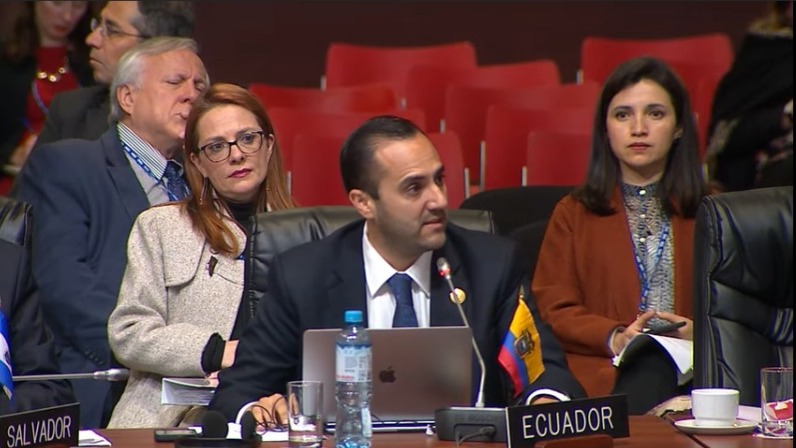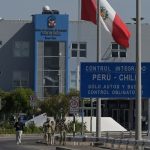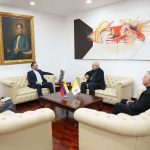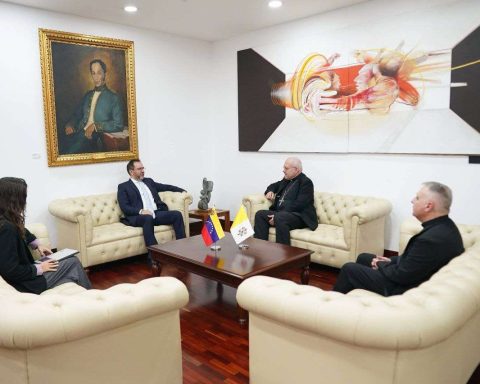The Minister of Foreign Affairs of Ecuador, Juan Carlos Holguín, called Nicaragua a “dictatorship” this Thursday and asked the Organization of American States (OAS) to pressure the Government of Daniel Ortega to change course, in addition to demanding a “solution definitive” in Venezuela.
During his speech at the fifty-second General Assembly of the OAS, which is being held in Lima, Holguín called “for the flagrant transgression of human rights and disrespect for basic freedoms in Nicaragua to end.”
The Ecuadorian foreign minister affirmed that in Nicaragua “a dictatorship is prolonged that carries crimes against humanity.”
Related news: Colombia “flees” from session on Nicaragua at the OAS after the assumption of Petro
“In its marked self-absorption, the Nicaraguan government once again attacked the Catholic Church, the pope and the UN Secretary General. This cannot continue and we must adopt resolutions that pressure this dictatorship to change course and end its manifest violation of human rights,” said Holguín.
The head of Ecuador’s diplomacy ratified the commitment of the Government of President Guillermo Lasso with minorities, including Venezuelan migrants, who number around half a million in Ecuador and for whom a new migration regularization process has been arranged.
“This leads me to say that the situation in Venezuela requires a definitive solution in which democracy, freedom and the protection of human rights prevail, especially of opponents,” he said.
The foreign minister stressed that “Ecuador follows closely and supports the resolutions of the UN Human Rights Council on Venezuela.”
Holguín also took advantage of his speech to thank the support of the Inter-American Commission on Human Rights (IACHR) in the face of the “painful situation in which Ecuador’s prisons find themselves,” where this week two massacres took place with a combined balance of 29 murdered prisoners. and 59 injured between inmates and police.
The Minister of Foreign Affairs recalled that the Ecuadorian Government continues to “implement the recommendations of the IACHR to get out of this unfortunate situation.”
“We appreciate the IACHR’s accompaniment to the tragic emblematic case of the femicide of María Belén Bernal,” Holguín said of the murder of this woman, described by her family as a “state crime” as it allegedly occurred in a police complex at the hands of her husband, a lieutenant now at large.
“Before, the IACHR was persecuted and criticized in our country, today it has access with total transparency to all situations that require its rapporteurship and accompaniment,” he added.
In this sense, the Foreign Minister of Ecuador asserted that “the OAS is more relevant than ever, with enormous challenges regarding inequality and discrimination, but in this space we continue to lay the foundations to solve those challenges.”
Holguín advocated “reaching a true continental regional integration. Only in this way, with a large economic bloc, will each of our countries be able to prosper and their economies grow and rise”.
Nor did he fail to condemn Russia’s war in Ukraine by stating that it also affects the Americas, as he recalled that there were more than a thousand Ecuadorians in Ukraine on the day of the first attack and there are currently about 2,000 in Russia.
In this way, he demanded that “the aggression against Ukraine be put to an immediate end and calm for a prompt, just and lasting peace like the one we all deserve.”

















